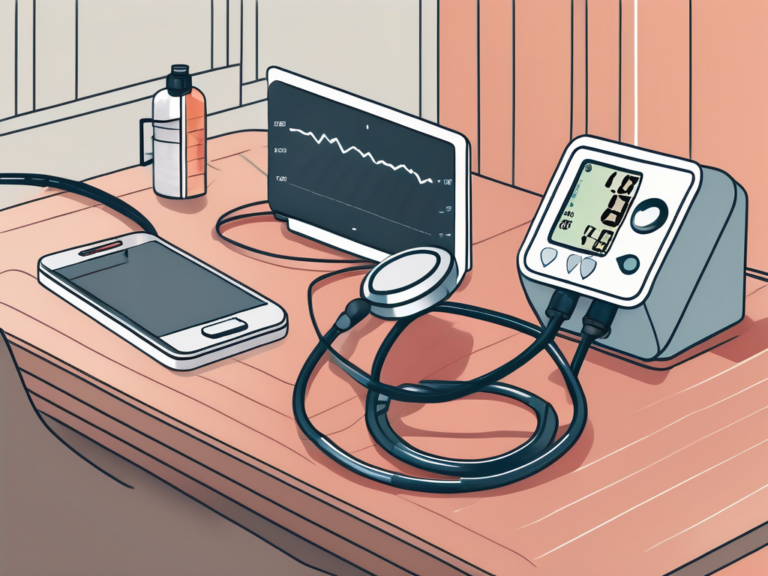Heart, Home and Vestibular Nerve
The vestibular nerve plays a crucial role in our overall well-being, connecting our sense of balance and spatial orientation to the brain. In this article, we will explore the intricate relationship between the heart, home, and the vestibular nerve, shedding light on how these three elements interconnect and contribute to our overall health and stability.
Understanding the Vestibular Nerve
The vestibular nerve is a part of the eighth cranial nerve, also known as the vestibulocochlear nerve. Its primary function is to transmit sensory information related to balance and spatial orientation from the inner ear to the brain. This information is essential for maintaining stability and coordinating our movements.
Anatomy of the Vestibular Nerve
The vestibular nerve consists of two branches – the superior and inferior vestibular nerves. These branches work together to carry signals from the vestibular organs in the inner ear to the brainstem and various areas of the brain responsible for integrating and processing this information.
Located within the inner ear, the vestibular organs, including the semicircular canals and the otolith organs, play a crucial role in detecting changes in head position, rotational movements, and linear acceleration. The intricate network of hair cells within these organs converts mechanical stimulation into electrical signals, which are then transmitted through the vestibular nerve.
The superior vestibular nerve is responsible for transmitting information from the horizontal semicircular canal and the utricle, while the inferior vestibular nerve carries signals from the posterior and anterior semicircular canals and the saccule. These different branches ensure that a comprehensive range of spatial information is relayed to the brain, allowing for precise coordination and balance.
Function of the Vestibular Nerve
The vestibular nerve enables us to maintain balance, coordination, and spatial orientation. This intricate system allows us to adapt to changes in our environment, such as walking on uneven surfaces, maintaining stable posture, and performing complex movements without feeling disoriented or unsteady.
When the head moves, the vestibular organs detect these movements and send signals through the vestibular nerve to the brain. The brain then processes this information, allowing us to make the necessary adjustments to maintain our balance and stability. For example, when we tilt our head to the side, the vestibular nerve sends signals to the brain, which in turn activates the muscles in our neck and back to counteract the tilt and keep us upright.
The vestibular nerve also works closely with other sensory systems, including our visual and proprioceptive systems. It helps synchronize information from these systems, allowing for accurate perception and integration of our surroundings. This coordination between different sensory inputs is crucial for tasks such as walking on a narrow beam or riding a bicycle, where visual cues, proprioception, and vestibular information must all work together to maintain balance.
The Heart’s Role in Vestibular Function
While the vestibular nerve primarily relies on the inner ear to transmit sensory information, research suggests that the cardiovascular system may also impact its function. The connection between heart health and vestibular function is an emerging field of study that warrants further exploration.
Understanding the intricate relationship between the cardiovascular system and vestibular function is crucial for comprehending the holistic nature of human physiology. The heart, a powerful organ responsible for pumping oxygenated blood throughout the body, plays a vital role in maintaining equilibrium and coordination. Its influence on the vestibular system highlights the interconnectedness of bodily systems in ensuring optimal health and functionality.
Cardiovascular System and Vestibular Interactions
Studies have indicated that blood pressure and heart rate variations may influence vestibular responses. Changes in blood flow to the inner ear, including the vestibular organs, could affect their function and ultimately disrupt our sense of balance. However, the exact mechanisms and extent of these interactions require further investigation.
The regulation of blood flow to the inner ear is a complex process that involves a delicate balance of vascular dynamics and neural signaling. The interplay between the cardiovascular system and the vestibular apparatus underscores the intricate web of physiological processes that contribute to our ability to perceive motion and spatial orientation. Further research in this area holds the promise of unveiling new insights into the interconnectedness of cardiovascular health and vestibular function.
Heart Health and Vestibular Disorders
Some medical conditions, such as cardiovascular diseases and hypertension, have been associated with vestibular dysfunction. While the causal relationship between these conditions and vestibular disorders is still unclear, maintaining a healthy heart is undoubtedly beneficial for overall well-being.
The prevalence of vestibular disorders in individuals with underlying cardiovascular conditions underscores the importance of comprehensive health management. By prioritizing heart health through regular exercise, a balanced diet, and medical monitoring, individuals may potentially mitigate the risk of developing vestibular issues. The synergy between heart health and vestibular function exemplifies the intricate balance required for optimal physiological performance and underscores the interconnectedness of bodily systems in maintaining equilibrium.
Home Remedies for Vestibular Disorders
While medical interventions and therapies play a crucial role in managing vestibular disorders, there are also several lifestyle changes and natural remedies that can help alleviate symptoms and improve vestibular health.
Living with a vestibular disorder can be challenging, but incorporating certain lifestyle changes can make a significant difference in managing symptoms and improving overall well-being. In addition to medical treatments, individuals can explore various home remedies to complement their care regimen.
Lifestyle Changes for Better Vestibular Health
Regular exercise, including activities that promote balance and coordination, can help strengthen the vestibular system. Engaging in exercises like yoga, tai chi, or Pilates can enhance proprioception and spatial awareness, key components of a healthy vestibular system. Furthermore, maintaining a consistent sleep schedule and staying hydrated are simple yet effective ways to support vestibular function.
Additionally, incorporating stress-reducing practices into daily routines can have a positive impact on vestibular health. Practicing mindfulness techniques, such as deep breathing exercises and meditation, can help reduce anxiety levels and improve overall well-being. By managing stress levels, individuals may experience a reduction in vestibular symptoms and an improvement in their quality of life.
Natural Remedies for Vestibular Disorders
While natural remedies should always be approached with caution and discussed with healthcare professionals, some individuals find relief through alternative therapies such as acupuncture, herbal supplements, and dietary modifications. Acupuncture, an ancient practice rooted in Traditional Chinese Medicine, is believed to restore the flow of energy in the body and promote balance within the vestibular system. Herbal supplements like ginger or ginkgo biloba are also popular choices for managing symptoms of dizziness and vertigo.
Furthermore, making dietary modifications, such as reducing sodium intake and staying hydrated, can positively impact vestibular health. A well-balanced diet rich in fruits, vegetables, and whole grains can provide essential nutrients that support overall wellness. It is important to remember that while these natural remedies may offer relief for some individuals, they should not be used as a substitute for professional medical advice or prescribed treatments.
The Connection Between Heart, Home and Vestibular Nerve
Our environment plays a significant role in maintaining and promoting vestibular health. The interplay between heart health, the physical home environment, and the vestibular nerve highlights the importance of holistic well-being and the need to consider multiple factors in achieving optimal balance and stability.
Understanding the intricate relationship between our surroundings and our vestibular system is crucial for overall health and wellness. The vestibular system, located within the inner ear, is responsible for maintaining balance, spatial orientation, and eye movements. Any disruptions in this system can lead to dizziness, vertigo, and a loss of equilibrium, impacting our daily activities and quality of life.
The Impact of Environment on Vestibular Health
Research suggests that certain activities and conditions in our daily lives can either support or hinder vestibular function. Factors such as exposure to noise, lighting conditions, and the presence of hazards at home or work can affect our vestibular system’s performance. Creating a safe and supportive environment can be beneficial for preventing potential disruptions in balance and spatial orientation.
Furthermore, incorporating elements of nature into our living spaces, such as plants and natural light, can have a positive impact on our vestibular health. Studies have shown that exposure to natural elements can reduce stress, improve mood, and enhance overall well-being, which can indirectly benefit the vestibular system.
The Interplay of Heart Health and Vestibular Function
Ensuring a healthy heart through regular exercise, proper nutrition, and managing risk factors can indirectly support the vestibular nerve’s function. By maintaining optimal cardiovascular health, individuals may reduce the risk of potential complications and improve overall well-being, thus indirectly supporting their vestibular health.
In addition to cardiovascular benefits, regular physical activity can also enhance blood circulation, which is essential for delivering oxygen and nutrients to the inner ear structures responsible for vestibular function. This improved blood flow can help maintain the health and functionality of the vestibular system, contributing to better balance and stability.
Maintaining Balance: Heart, Home and Vestibular Nerve
Promoting vestibular health requires a multi-faceted approach that incorporates various strategies and interventions. Here, we explore some strategies that can help maintain balance and support the optimal function of the vestibular nerve.
One important strategy for promoting vestibular health is to prioritize regular check-ups with healthcare professionals, including ear specialists. These professionals have the expertise to identify and address potential vestibular issues promptly, ensuring that any problems are caught early on. By staying proactive and seeking professional guidance, individuals can take the necessary steps to maintain their vestibular health.
In addition to regular check-ups, implementing environmental modifications can also support vestibular function. This can include making changes to the physical environment to reduce potential hazards or triggers for vestibular dysfunction. For example, individuals can ensure that their homes are well-lit and free of clutter, minimizing the risk of falls or accidents that can disrupt balance. By creating a safe and supportive environment, individuals can significantly reduce the risk of vestibular issues.
Practicing exercises that promote balance and coordination is another effective strategy for maintaining vestibular health. These exercises can include activities such as yoga, tai chi, or specific vestibular rehabilitation exercises prescribed by healthcare professionals. By engaging in regular physical activity that targets balance and coordination, individuals can strengthen the vestibular system and improve overall stability.
Managing stress levels is also crucial for promoting vestibular health. Stress can have a significant impact on the body, including the vestibular system. High levels of stress can exacerbate vestibular symptoms or even trigger vestibular dysfunction. Therefore, incorporating stress management techniques such as meditation, deep breathing exercises, or engaging in hobbies and activities that promote relaxation can be beneficial for maintaining a healthy vestibular system.
The Future of Vestibular Health Research
Vestibular health research is an ever-evolving field, continually exploring new diagnostic tools, treatment options, and better understanding the complex interactions between the heart, home, and the vestibular nerve. Ongoing research endeavors offer promising prospects for enhancing our understanding of vestibular disorders and developing interventions that can improve the quality of life for individuals affected by vestibular dysfunction.
Researchers are currently investigating innovative diagnostic tools that can provide more accurate and efficient assessments of vestibular function. These tools may include advanced imaging techniques, such as magnetic resonance imaging (MRI) or functional MRI (fMRI), which can provide detailed insights into the inner ear and the vestibular system. By improving diagnostic capabilities, healthcare professionals can make more informed decisions regarding treatment and management of vestibular disorders.
In addition to diagnostic tools, researchers are also exploring novel treatment options for vestibular dysfunction. This includes the development of targeted medications, innovative rehabilitation techniques, and even potential gene therapies. These advancements hold great promise for individuals with vestibular disorders, as they may offer more effective and personalized treatment approaches in the future.
Furthermore, ongoing research aims to deepen our understanding of the intricate relationship between the heart, home, and the vestibular nerve. By unraveling the complex interactions between these elements, researchers hope to identify new avenues for intervention and prevention of vestibular dysfunction. This comprehensive approach to research will ultimately contribute to the development of more tailored and effective strategies for promoting vestibular health.






